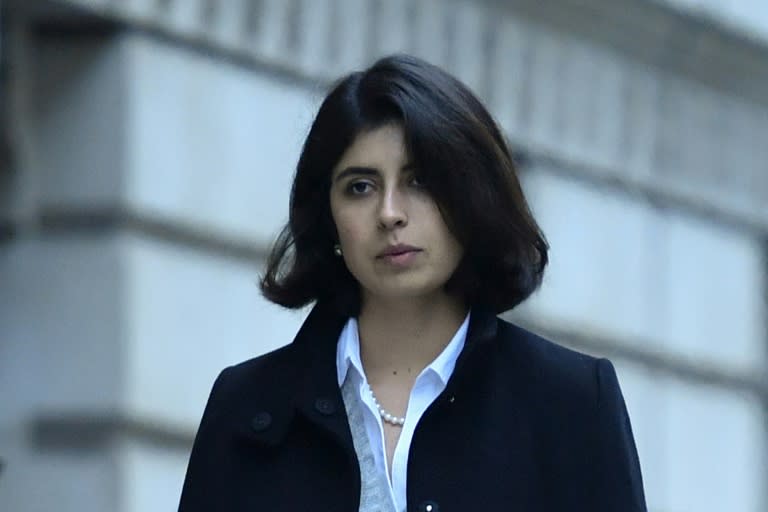Wife of UK scholar jailed for life in UAE blames London
The wife of a British scholar who was sentenced to life for spying in the United Arab Emirates accused London on Thursday of refusing to defend her husband for fear of upsetting Dubai. The sentencing of 31-year-old Matthew Hedges on Wednesday shocked Britain and put political pressure on Foreign Secretary Jeremy Hunt. Britain views the UAE as a strategic Middle East ally which it supplies with arms. The oil-rich Gulf state said on Thursday that Hedges can still appeal the verdict or request "presidential clemency". "Both sides hope to find an amicable solution to the Matthew Hedges case," the UAE foreign ministry said. But Dubai's apparent attempt to put the dispute behind it came only after an unusual diplomatic scandal erupted in London. Hedges's wife Daniela Tejada gave an impassioned interview to BBC radio on her return from the court hearing. She accused the Foreign Office of placing its interests above those of an innocent Briton. "I got the impression that they were putting their interests with the UAE above a British citizen's rightful freedom and his welfare and his right to just a fair trial, just to freedom," Tejada said. "They were stepping on eggshells instead of taking a firm stance." Hedges was detained at Dubai airport on May 5 while researching the UAE's foreign and internal security policies after the Arab Spring revolutions of 2011. Hunt became foreign minister in July but only began to speak out about the case after Hedges's family went public with news of his arrest in early October. The scholar was released on bail on October 29 and top British officials appeared stunned by Wednesday's court ruling. Prime Minister Theresa May told a session of parliament she was "deeply disappointed" and instructed the Foreign Office to "continue to press this matter at the highest level with the Emiratis". - 'Disregarded my requests' - Hunt received Tejada for a private meeting at the Foreign Office that ended with her only marginally softening her tone. "This is not a fight I can win alone and I thank the Foreign Office and the British public for now standing up for one of their citizens," she told reporters in a prepared statement. She had earlier told the BBC that she had pleaded in vain with the Foreign Office to force the UAE to release her husband from solitary confinement during his pre-trial detention. "They just disregarded my requests. They said that it wasn't part of their job, that it wasn't part of their duty." Her voice broke down several times as she described the fear that gripped her husband during the sentencing. "He was very, very scared when he was standing in front of the judge," said Tejada. "He started shaking when the translator told him the sentence. He actually had to ask to double-check if he had heard right." A professor at England's Durham University who supervised the research said Hedges was conducting interviews in Dubai to support his thesis. "There was nothing clandestine or covert in any of the material he had been using," Professor Clive Jones told the BBC. The UAE statement said Hedges was convicted after "compelling and powerful evidence was presented in court". It said that included "information extracted from his personal electronic devices by expert forensic analysis techniques". The UAE also denied that Hedges's confession to spying was made under duress or that "he was asked to sign documents he did not understand."



